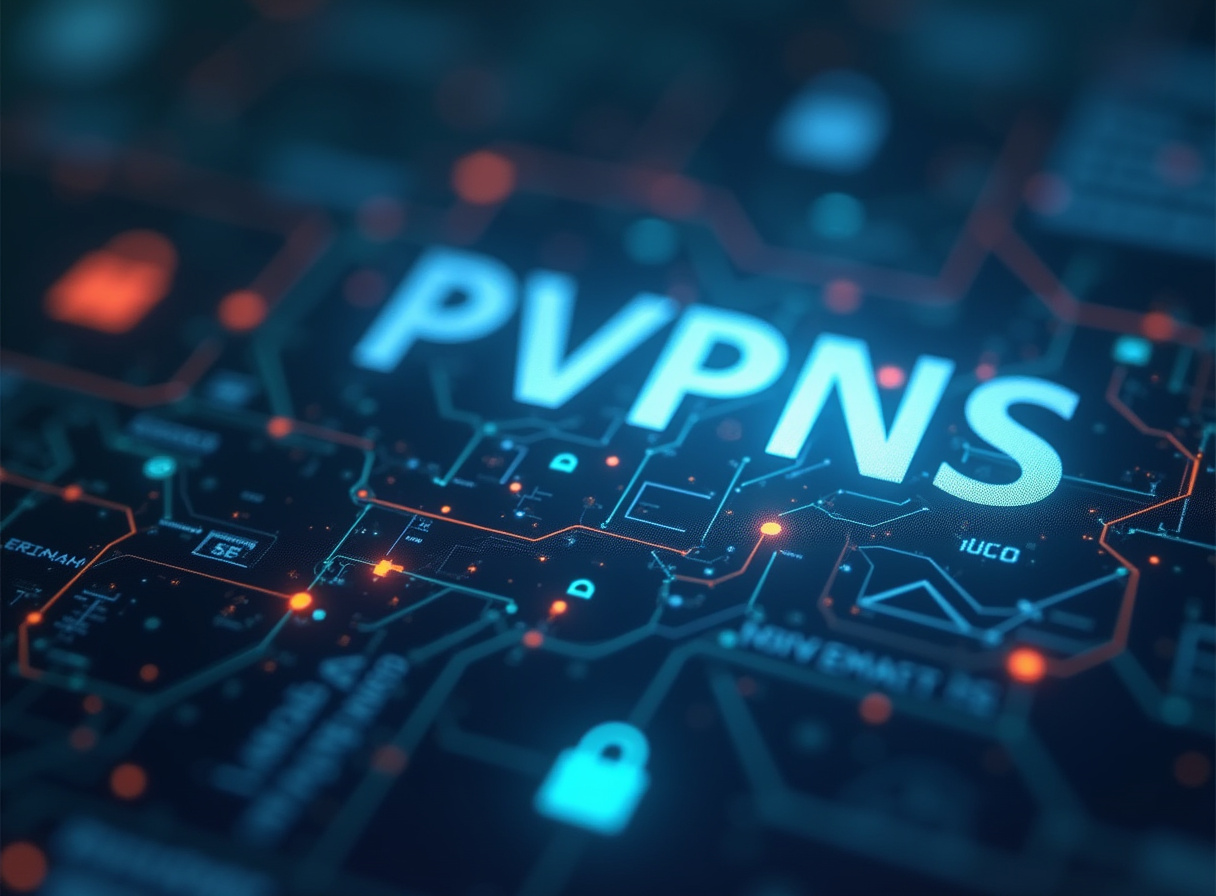VPNs for Academic Publishers: Safeguarding Manuscripts

Table of Contents
The Evolving Threat Landscape in Academic Publishing
Academic publishing, once a world of physical manuscripts and closed-door reviews, has been irrevocably transformed by the digital age. This shift has brought unprecedented opportunities: wider dissemination of research, faster publication cycles, and collaborative tools that span continents. However, this digital evolution has also introduced significant vulnerabilities, making academic publishers prime targets for cyberattacks and data breaches.
The heart of academic publishing lies in the intellectual property of researchers – their manuscripts, groundbreaking discoveries, and painstakingly gathered data. Protecting this intellectual property, ensuring the integrity of the peer-review process, and safeguarding against unauthorized access are now critical priorities. Academic publishers face a complex threat landscape, ranging from malicious hackers seeking to steal valuable data to disgruntled individuals attempting to sabotage the publication process.
A single security breach can have devastating consequences, eroding trust in the publisher, damaging reputations, and potentially compromising the integrity of scientific research. Therefore, academic publishers must proactively implement robust security measures to mitigate these risks and protect their valuable assets. Among the many cybersecurity tools available, a Virtual Private Network (VPN) has emerged as an indispensable asset, offering a secure and encrypted solution for protecting manuscripts and ensuring the confidentiality of sensitive communications.
This article delves into the importance of VPNs for academic publishers, exploring how they safeguard manuscript security, protect the peer-review process, and maintain content integrity in an increasingly volatile digital environment. The need for robust security in academic publishing stems from the inherent sensitivity of the information handled. Manuscripts, often containing unpublished research findings, represent a significant investment of time, effort, and resources by researchers.
Their premature release or unauthorized alteration can have severe consequences, including intellectual property theft, competitive disadvantage, and even retraction of published work. The peer-review process, a cornerstone of academic rigor, also demands strict confidentiality. Reviewers, often leading experts in their fields, provide critical assessments of manuscripts, offering constructive feedback and identifying potential flaws.
The anonymity of the review process ensures impartiality and encourages honest critiques. Any breach of confidentiality can compromise this process, potentially leading to biased reviews, conflicts of interest, or even the leaking of sensitive information to competitors. Recognizing these inherent vulnerabilities, academic publishers are increasingly turning to VPNs as a key component of their security infrastructure.
A VPN creates a secure, encrypted connection between a user's device and a remote server, effectively masking the user's IP address and encrypting all data transmitted through the tunnel. This encrypted tunnel protects sensitive data from interception by hackers, eavesdroppers, or other malicious actors, ensuring that only authorized individuals can access confidential information. For academic publishers, this means that manuscripts, reviewer comments, and other sensitive data can be transmitted securely over the internet, without fear of being intercepted or compromised.
Furthermore, a VPN can help to protect against denial-of-service (DoS) attacks, which can disrupt access to publishing platforms and prevent authors and reviewers from submitting or accessing manuscripts. By masking the publisher's IP address and routing traffic through a secure server, a VPN can help to mitigate the impact of DoS attacks and maintain the availability of critical services. In essence, a VPN provides a crucial layer of security for academic publishers, allowing them to operate in a safe and secure digital environment, protect their valuable assets, and maintain the integrity of the scholarly publishing process.
As the threat landscape continues to evolve, the use of VPNs will become increasingly essential for academic publishers seeking to safeguard their manuscripts and maintain the trust of the research community.
Safeguarding Manuscripts with VPN Encryption
The operational mechanics of a VPN are critical to understanding its effectiveness in securing academic publishing workflows. At its core, a VPN establishes a secure, encrypted tunnel between a user's device – whether it's an editor's laptop, a reviewer's home computer, or an author's workstation – and a VPN server. This server acts as an intermediary, masking the user's real IP address with its own, and encrypting all data transmitted through the tunnel.
This process effectively hides the user's online activity from prying eyes, preventing interception by malicious actors who might attempt to steal sensitive information or monitor communications. For academic publishers, this encrypted connection is paramount in protecting a range of critical operations. One of the primary benefits lies in securing manuscript submissions.
Authors submitting their work are entrusting publishers with valuable intellectual property, often containing unpublished research findings, novel ideas, and sensitive data. Transmitting these manuscripts over an unsecured network leaves them vulnerable to interception, potentially leading to plagiarism, unauthorized disclosure, or even the sabotage of research. A VPN ensures that these transmissions remain confidential by encrypting the data, making it virtually unreadable to anyone without the decryption key.
This provides authors with the assurance that their work is protected throughout the submission process. Furthermore, the peer-review process, the very foundation of academic integrity, relies on the confidential exchange of manuscripts between editors and reviewers. These reviewers meticulously evaluate the scientific merit, originality, and significance of submitted work, providing invaluable feedback to both authors and editors.
The impartiality and honesty of this process depend heavily on confidentiality. If manuscripts or reviewer comments were to be intercepted, the process could be compromised, leading to biased reviews, conflicts of interest, or the premature disclosure of sensitive findings. A VPN addresses this vulnerability by encrypting the communication channels used for sharing manuscripts and reviewer feedback, thereby ensuring that this sensitive information remains protected from unauthorized access.
The benefits of a VPN extend beyond manuscript submissions and peer review to encompass internal communications and data storage. Academic publishers handle a vast amount of confidential information, including author contracts, financial data, and strategic marketing plans. These data must be shared and accessed securely by employees working in various locations, both within the office and remotely.
A VPN establishes a secure environment for authorized personnel to access and share this information, mitigating the risk of data breaches and unauthorized disclosures. This is particularly crucial in today's increasingly distributed work environments, where employees may be accessing sensitive data from their home networks or public Wi-Fi hotspots. Moreover, with the growing adoption of cloud-based storage solutions, academic publishers are entrusting their data to third-party providers.
While these providers implement their own security measures, a VPN provides an additional layer of protection by encrypting the data in transit between the publisher's network and the cloud server. This ensures that manuscripts and other sensitive data remain protected even if the cloud provider's security is compromised. By encrypting these data transmissions, publishers can safeguard against data breaches and maintain the integrity of their content, regardless of where it is stored.
In short, a VPN's robust encryption and secure tunneling capabilities provide comprehensive protection throughout the entire publishing workflow, from manuscript submission to peer review, internal data management, and cloud storage. This makes it an essential security tool for academic publishers navigating the complexities of the digital age.
Protecting the Peer-Review Process with Secure VPN Connections
Content integrity, the assurance that published material remains unaltered from its original form, stands as a cornerstone of academic publishing. It guarantees the trustworthiness and credibility of scholarly work, solidifying the publisher's reputation and fostering confidence within the research community. Any deviation from this integrity, whether through unauthorized modification or accidental corruption, can have far-reaching consequences, jeopardizing research validity and eroding public trust.
A VPN emerges as a critical tool in safeguarding content integrity throughout the publishing lifecycle. By establishing a secure, encrypted tunnel for manuscript transmission and storage, it shields data from external threats and internal vulnerabilities. When manuscripts travel between authors, editors, and reviewers or are uploaded to cloud-based repositories, the VPN's encryption thwarts unauthorized entities from intercepting and tampering with them during transit.
This protection extends beyond external threats, bolstering defenses against internal vulnerabilities as well. Access control mechanisms, fortified by robust authentication and authorization protocols, limit sensitive data access to authorized individuals, mitigating the risk of unauthorized modifications by employees or contractors. Furthermore, VPNs equipped with activity logging features generate audit trails, meticulously recording user actions.
These trails serve as invaluable tools for detecting and investigating suspicious activity, flagging unauthorized manuscript changes, and facilitating prompt corrective measures. The role of a VPN in preserving content integrity extends to safeguarding against data corruption, a threat that can arise from hardware failures, software glitches, or network disruptions. A VPN, combined with data integrity checks, ensures the accuracy and completeness of stored manuscripts.
These checks, performed regularly, identify and rectify any data discrepancies or corruptions, preventing the propagation of errors into published works. Beyond these core functionalities, VPNs can also mitigate risks associated with collaborative editing and version control. In modern publishing workflows, multiple individuals often collaborate on a single manuscript, making changes and suggestions that need to be carefully tracked and managed.
A VPN, coupled with proper version control systems, ensures that all edits are properly recorded, preventing overwriting, accidental deletions, and other errors that could compromise content integrity. Securing the peer review process is another facet of content integrity where VPNs provide crucial assistance. The anonymity of reviewers is vital for fostering honest and unbiased evaluations.
VPNs can mask the IP addresses of reviewers, protecting their identities from authors who might seek to influence the review process or retaliate against negative feedback. Furthermore, VPNs ensure the secure transmission of reviews between reviewers and editors, preventing unauthorized access to confidential feedback that could compromise the integrity of the review process. In essence, a VPN bolsters content integrity on multiple fronts – preventing unauthorized alterations, guarding against data corruption, facilitating secure collaboration, and protecting the peer review process.
By implementing a VPN and integrating it with other security best practices, academic publishers can significantly enhance their ability to maintain a strong and unwavering commitment to content integrity, fostering trust and confidence in the scholarly works they publish. These measures are vital for upholding the reputation of the publisher, maintaining the validity of scientific research, and ensuring the long-term health of the academic publishing ecosystem. The combination of VPN technology, strong internal controls, and proactive monitoring offers a robust defense against both internal and external threats to content integrity, solidifying the foundation upon which accurate and reliable scholarly communication is built.
Maintaining Content Integrity and Preventing Unauthorized Access
Protecting the peer review process is paramount for upholding the integrity and credibility of academic publishing. This rigorous evaluation, conducted by subject matter experts, ensures the quality, validity, and originality of scholarly work. A compromised peer review process can undermine the entire foundation of academic research, leading to the publication of flawed or biased studies, eroding public trust, and potentially hindering scientific progress.
Academic publishers must, therefore, implement robust security measures to safeguard every stage of the peer review process, from the initial manuscript submission to the final publication decision. A VPN serves as a critical component of this security framework, providing a secure and encrypted channel for communication and data exchange between authors, editors, and reviewers. The most vulnerable point in the peer review process often lies in the transmission of manuscripts.
These documents, containing sensitive research findings and intellectual property, are susceptible to interception and unauthorized access if transmitted over unsecured networks. A VPN addresses this vulnerability by encrypting all data transmitted through the tunnel, ensuring that only authorized individuals with the decryption key can read and access the manuscript. This is particularly important when reviewers are located in different geographical locations, accessing the network from potentially insecure environments, such as public Wi-Fi hotspots.
Maintaining reviewer anonymity is another crucial aspect of protecting the peer review process. Anonymity encourages reviewers to provide honest and unbiased feedback, free from the pressure or influence of authors. A VPN can help to preserve reviewer anonymity by masking their IP addresses and concealing their geographical locations.
This prevents authors from identifying reviewers and potentially attempting to contact them directly, either to influence the review or retaliate against negative feedback. The secure exchange of reviewer comments and recommendations is also essential for maintaining the integrity of the peer review process. Reviewer reports often contain sensitive information, including criticisms of the manuscript, suggestions for improvement, and assessments of the author's work.
If these reports fall into the wrong hands, they could be used to undermine the author, disclose confidential information, or even compromise the integrity of the journal. A VPN ensures the secure transmission of reviewer reports between reviewers and editors, preventing unauthorized access and maintaining the confidentiality of the review process. Furthermore, a VPN can help protect against cyberattacks targeted at disrupting the peer review process.
Hackers may attempt to gain unauthorized access to the publishing system, alter reviewer identities, or manipulate reviewer reports to influence the publication decision. By providing a secure and encrypted connection, a VPN can make it more difficult for hackers to penetrate the publishing system and compromise the peer review process. In addition to these technical safeguards, academic publishers should also implement robust security policies and procedures to govern the peer review process.
These policies should include strict guidelines on confidentiality, data security, and access control, as well as training for editors and reviewers on best practices for protecting sensitive information. By combining a VPN with strong security policies and procedures, academic publishers can create a comprehensive defense against threats to the peer review process, ensuring the integrity and credibility of their publications. This holistic approach is essential for maintaining the trust of the research community and upholding the standards of academic excellence.
The protection of the peer review process is not merely a technological challenge; it requires a multi-faceted approach that encompasses technical solutions, policy frameworks, and human awareness. A VPN serves as a vital technological tool, providing a secure foundation for the other components of this comprehensive security strategy.
Implementing a VPN effectively within an academic publishing environment requires careful planning, strategic deployment, and ongoing maintenance. It's not simply a matter of installing software; it's a comprehensive security initiative that must align with the publisher's specific needs, workflows, and risk profile. Academic publishers should carefully assess their existing infrastructure, identify potential vulnerabilities, and define clear security objectives before selecting and deploying a VPN solution.
A key initial step involves choosing the right type of VPN. Several VPN protocols exist, each with its own strengths and weaknesses in terms of speed, security, and compatibility. Publishers need to consider factors such as the level of encryption required, the types of devices used by editors and reviewers, and the desired level of performance when selecting a suitable protocol.
For example, some protocols may be more appropriate for mobile devices, while others may be better suited for desktop computers. Furthermore, publishers must decide whether to use a hosted VPN service or to set up their own VPN server. Hosted VPN services offer convenience and ease of management, as the provider handles the technical aspects of setup and maintenance.
However, publishers may have less control over the security and privacy of their data. Setting up a private VPN server provides greater control and customization but requires in-house expertise and resources for ongoing management. Once a VPN solution has been selected, proper configuration is essential.
This includes setting up strong authentication protocols, such as multi-factor authentication, to prevent unauthorized access to the VPN server. Publishers should also configure access control lists to restrict access to sensitive resources based on user roles and permissions. This ensures that only authorized personnel can access specific manuscripts, reviewer reports, and other confidential data.
Regular monitoring and maintenance are crucial for ensuring the ongoing effectiveness of the VPN. Publishers should monitor VPN logs for suspicious activity, such as unauthorized login attempts or unusual traffic patterns. They should also regularly update the VPN software to patch security vulnerabilities and ensure compatibility with the latest operating systems and devices.
Furthermore, it's essential to educate editors, reviewers, and other staff members on how to use the VPN properly and securely. This includes training on password security, phishing awareness, and best practices for protecting sensitive data. Publishers should also establish clear policies and procedures for VPN usage, outlining acceptable use, data security requirements, and incident reporting protocols.
Integrating the VPN with other security measures is also a critical best practice. This includes combining the VPN with firewalls, intrusion detection systems, and anti-malware software to create a layered defense against cyberattacks. Publishers should also implement data loss prevention (DLP) tools to monitor and prevent the unauthorized exfiltration of sensitive data from the network.
In addition to technical measures, academic publishers should also prioritize security awareness training for all employees and contractors. This training should cover topics such as phishing scams, social engineering attacks, and best practices for protecting sensitive data. By fostering a culture of security awareness, publishers can empower their employees to identify and report potential threats, reducing the risk of human error and insider attacks.
Moreover, academic publishers should conduct regular security audits to assess the effectiveness of their security measures and identify any potential weaknesses. These audits should be conducted by independent security experts who can provide objective feedback and recommendations for improvement. By taking a proactive and comprehensive approach to VPN implementation and security management, academic publishers can significantly enhance their ability to safeguard manuscripts, protect the peer review process, and maintain content integrity in the face of evolving cyber threats.
This commitment to security is essential for preserving the trust of the research community and ensuring the continued success of scholarly publishing.
Stay Updated
Get the latest VPN news, tips, and exclusive deals to your inbox.




